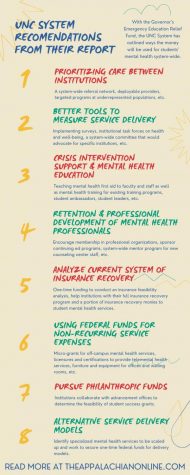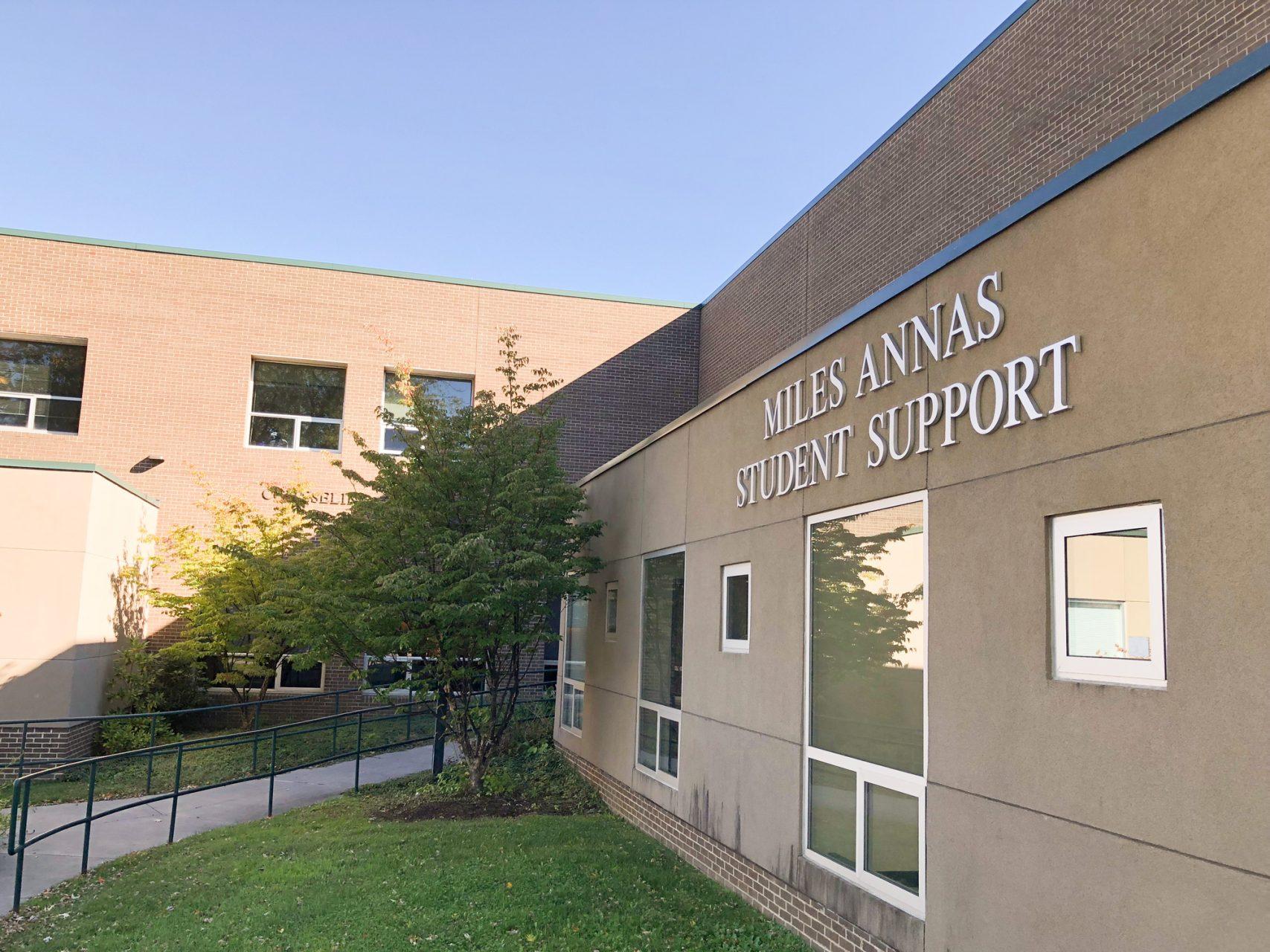UNC System sets aside money for mental health with help of GEERF
May 27, 2021
The UNC System is aiming to prioritize its students’ mental health with assistance from the Governor’s Emergency Education Relief Fund.
This announcement came with a report from the system titled, “Healthy Minds, Strong Universities: Charting a Course to More Sustainable Student Mental Health Care.”
Five million will go toward the reports’ eight recommendations:

Recommendation #1: Increase investment in quality and coordination of student mental health care within and between institutions.
Recommendation #2: Invest in tools (surveys, system-wide committees, peer-review team, etc) that enable better measurement of service delivery and outcomes so that campuses can make informed care decisions.
Recommendation #3: Increase crisis intervention support and mental health education among various campus stakeholders like existing training programs, student ambassadors, etc.
Recommendation #4: Invest in professional development and retention efforts of mental health professionals.
Recommendation #5: Pending System analysis of insurance recovery, expand insurance recovery in ways and for purposes with demonstrated return on investment.
Recommendation #6: Utilize Federal Coronavirus Relief funds for non-recurring mental health service expenses.
Recommendation #7: Pursue additional philanthropic funds to support student mental health services.
Recommendation #8: Develop alternative service delivery models for specialized mental health services.
“The UNC System appreciates the Governor’s support to keep our students on track towards (sic) on-time graduation through completion grants and to address urgent mental health needs, especially for at-risk students,” said UNC System President Peter Hans in a press release.
In December 2020, the UNC System launched a 24-hour telephone crisis intervention support service for after-hours counseling. In March, system chancellors received guidance on how to prioritize the third round of Higher Education Emergency Relief Fund grants. One recommendation encouraged institutions to fund mental health services for students and employees of color, as recommended by the system’s Racial Equity Task Force.
Black at App State, an activist group on campus, released their own demands July 2020 regarding the oppression Black students and students of color face on campus and in the community. One component of these was for App State to hire Black and LGBTQIA+ affirming medical professionals and expand telehealth services.
This past spring semester, App State students pushed for mental health days in response to COVID-19 via Student Government initiatives and student petitions, but received none. UNC System schools like UNC-Chapel Hill and North Carolina State University, received such days only at their respective universities’ discretion.
App State’s own counseling center launched Let’s Teletalk at the beginning of the last academic year, a video conference approach to mental health services. Students can speak with licensed professionals for 20 minutes on a first-come, first-serve basis.
The counseling center sometimes refers its patients to off-campus services because, “you may get an appointment in the community more quickly,” according to its website.
This echo’s the voices of students at a 2019 protest on campus against the Appalachian Police Officer Development Program. Graduates from the academy would become part-time officers for the Appalachian State Police Department while finishing their degree.
Protesters chanted “Less cops, more doctors” on the lack of transparency in the program’s budget and for the possibility of the money being used to hire more mental health professionals.
“Many of our campuses have seen their counseling and outreach services strained to the breaking point,” Hans said. “And I think it’s clear to all of us that we need a better approach to both helping students in need and creating a more supportive environment that addresses student mental health before it becomes a crisis.”














